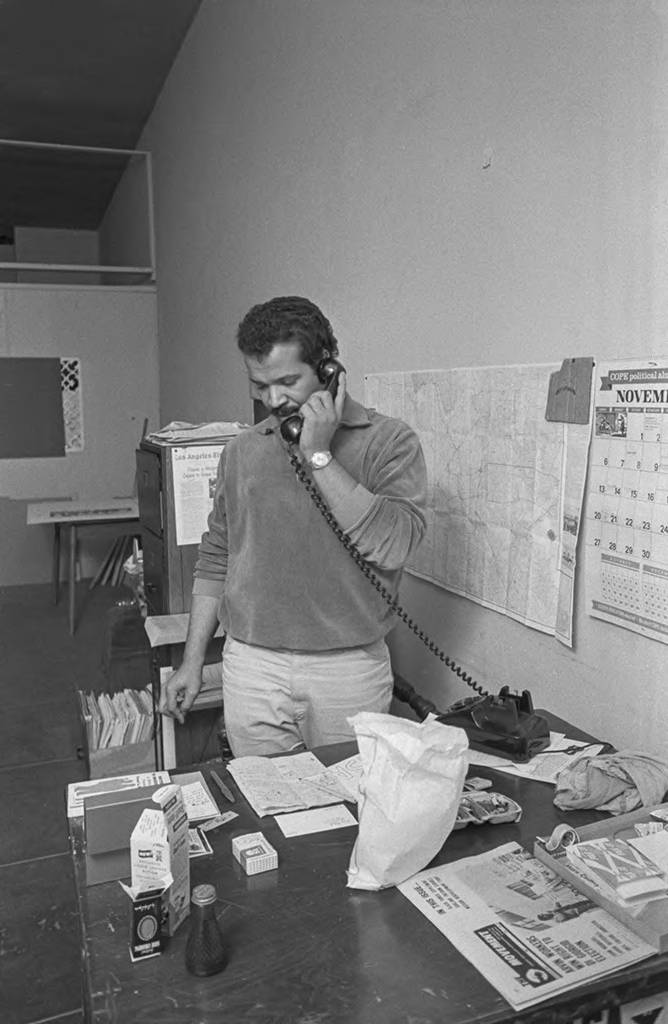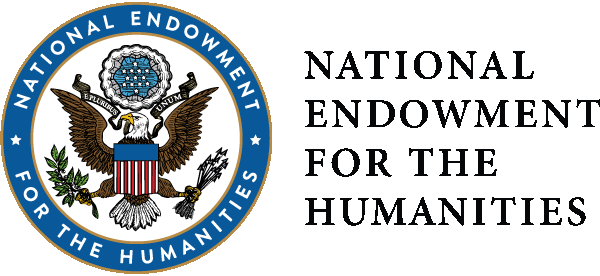Eliezer “Eli” Risco Lozada
Eliezer “Eli” Risco Lozada
Eli Risco and Eddie Frankel working at the Los Angeles office of the National Farm Workers Association (NFWA), Los Angeles, 1966. Photo by Emmon Clarke.
Eliezer Joaquín “Eli” Risco Lozada (1936-2017) fled his native Cuba in 1958 after Batista’s police killed his friend Frank País, a Baptist student leader who supported the July 26 Movement. Risco went to Kansas, to the Ottawa Baptist College, hoping to become a minister. He couldn’t stay there, went instead to Sacramento, and enrolled at Sacramento State, where he participated in Quaker protests against nuclear war.
In 1964, he went to graduate school at Stanford, where he was co-chairman of the Stanford Committee for Peace in Vietnam. He met Luis Valdez at that time, and they became friends. Risco visited Delano to see the emerging movement and decided to stay and quit school. He joined as a volunteer working primarily with El Teatro Campesino and translator for El Malcriado and the Migrant Ministry.
Eddie Frankel and Eli Risco working at the Los Angeles office of the National Farm Workers Association (NFWA), Los Angeles, 1966. Photo by Emmon Clarke.
Eli Risco talking on the phone at the NFWA Los Angeles office, Los Angeles, 1966
Luis Valdez gives him credit for helping him write the Plan of Delano (modeled after Zapata’s Plan de Ayala). After the pilgrimage, Risco became a vocal opponent of the merger of the National Farm Workers Association (NFWA) and the Agricultural Workers Organizing Committee (AWOC), arguing that the AFL-CIO would destroy the association’s populism. Reprimanded by Chávez for his political views and communist sympathies, Risco left the NFWA and moved to Los Angeles, where he became deeply involved in the Chicano movement—he was editor of La Raza newspaper (founded in 1967 by Risco, Ruth Robinson, and others), he helped plan the student walkouts, and the Chicano Moratorium. Risco also created the La Raza Studies program at Fresno State University in the late 1960s, which was later suspended but later re-established as the Chicano and Latin American Studies program.
Tom & Ethel Bradley Center
California State University, Northridge
18111 Nordhoff Street, Northridge, CA 91330
Phone: (818) 677-1200 / Contact Us


